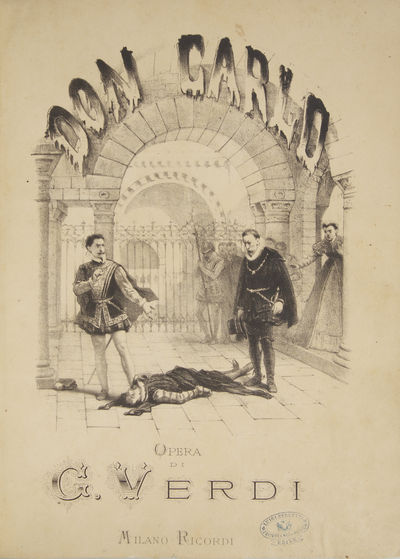


Hytner, then artistic director of The National Theatre, had already directed the opera at the Royal Opera House in London.Įlizabeth de Valois was to have married Don Carlo. This performance of the opera, starring Roberto Alagna as Carlo, Marina Poplavskaya as Elizabeth de Valois, Simon Keenlyside as Rodrigo, Ferruccio Furlanetto as King Philip II, Anna Smirova as Princess Eboli and Eric Halfvarson as Grand Inquisitor, was directed by Nicholas Hytner and conducted by Yannick Nézet-Séguin at The Met in New York in 2010.

But these days his play is completely overshadowed by Giuseppe’s Verdi’s opera. We’re hugely excited to welcome Luisa Miller back to Lyric.Friedrich Schiller, Germany’s greatest poet and playwright, denounces religious bigotry and state persecution in the strongest terms. Joining them will be Christan Van Horn (Walter), Alisa Kolosova (Federica), and the debuting Soloman Howard (Wurm), in a stirring production by Francesca Zambello, conducted by Verdi and bel canto specialist Enrique Mazzola. Lyric is presenting a spectacular cast, led by three artists whose successes at Lyric include triumphs in Verdi – Bulgarian soprano Krassimira Stoyanova (title role), Maltese tenor Joseph Calleja (Rodolfo), and American baritone Quinn Kelsey (Miller). Luisa has two captivating arias, and then there’s her extraordinary duet with Miller (get the handkerchiefs out for that one – it’s unforgettably beautiful and moving) the rip-roaring Walter/Wurm scene, one of opera’s few duets for two basses and an Act One finale that ranks with the greatest of all Verdi’s ensembles. Rodolfo’s despairing soliloquy in Act Two (when he falsely believes that Luisa has betrayed him) is one of the most celebrated of all tenor arias in Verdi. It’s Wurm’s villainous machinations that set the plot in motion toward its devastatingly tragic conclusion.Įvery number in this opera is a highlight. And meanwhile, there’s Wurm, Walter’s steward, who wants to marry Luisa himself. Walter won’t hear of his son marrying Luisa – he wants Rodolfo to marry a wealthy widow, Duchess Federica. He loves her, too, but he’s actually Rodolfo, whose father is the local lord, Count Walter. Luisa Miller exemplifies all the qualities that make the first decade of Verdi operas so totally memorable – dramatic power, intriguing relationships, and above all, astounding musical beauty, originality, and vitality.īased on a play by Friedrich Schiller, the opera presents Luisa, a village girl who loves a young man known to her as Carlo. This opera is actually something of a bridge between early Verdi and what we think of as “middle period” Verdi (the era that began with Rigoletto two years later). Starting the early-Verdi series next season will be the magnificent: Luisa Miller (1849), making its eagerly awaited return to Lyric after nearly four decades.


 0 kommentar(er)
0 kommentar(er)
